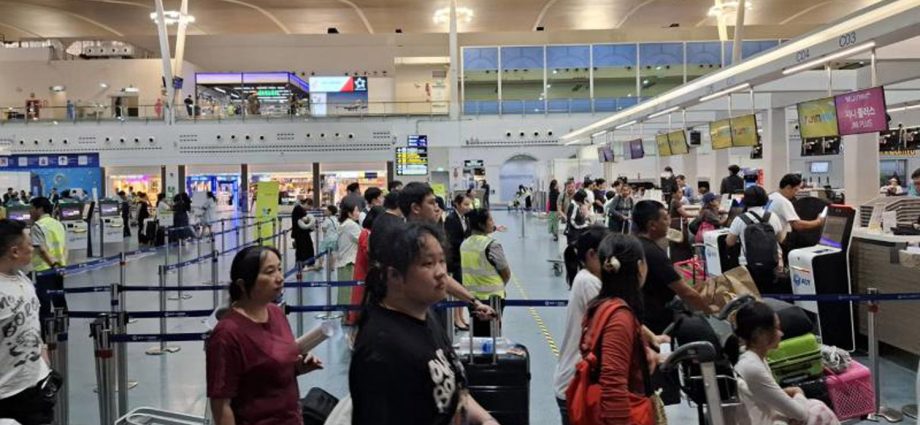Eyes reduction by 15 tonnes daily

Phuket has introduced a food waste management initiative aimed at reducing waste by 15 tonnes daily as part of its effort to become a low-carbon destination.
Janthima Duangsai, director of the Environmental and Pollution Control Office of the Pollution Control Department, said Phuket generates approximately 1,000 tonnes of waste daily.
This is driven by the rising number of visitors and the expansion of businesses on the island. From January to September this year, Phuket welcomed around nine million visitors, and the numbers are expected to grow.
Effective waste management, particularly of food waste, is essential, Ms Janthima said. Currently, 50% of the daily waste collected for disposal comprises food waste. Its high moisture content reduces the efficiency of Phuket’s waste incinerator, which has a capacity of 700 tonnes per day.
A study identified fresh markets as the largest source of food waste, followed by hotels, large retail stores, hospitals, restaurants, education outlets, religious institutions, small retail stores, and households. Waste generation also spikes on holidays compared to weekdays.
The project, funded by the Environmental Fund under the Ministry of Natural Resources and Environment, will run until April 30 next year. It will initially focus on three pilot districts: Muang, Kathu, and Thalang.
Authorities will conduct a food waste data survey, develop a platform for managing food waste and surplus food, promote food distribution systems, repurpose food waste, and provide materials and equipment to enhance waste management efficiency. They will also raise awareness and monitor the project’s progress, Ms Janthima said.
Last year, Phuket began implementing this initiative by signing a Memorandum of Understanding (MoU) among 17 public and private sector agencies and setting up a project management committee.
The committee promotes fundamental waste reduction practices, including reducing, reusing, and recycling. The project will expand to include households, retail stores (large and small), hotels, restaurants, fresh markets, and education outlets.
“We need cooperation from all sectors to reduce food waste as we strive to transform Phuket into a low-carbon, environmentally friendly city,” Ms Janthima said.
Thiraphong Chuaychu, deputy Phuket governor, added Phuket currently operates one incinerator, but the Ministry of Interior has approved funding for a second.
Meanwhile, a location for a third incinerator is being finalised.
“Increasing the number of incinerators will significantly improve the province’s capacity to manage daily waste,” he stated.
He also highlighted plans to convert some food waste into fertiliser, recycle used oil for biofuel, and turn waste into valuable products.
“We call on all sectors to work together to reduce the waste entering incinerators. This will enhance Phuket’s image as a sustainable province.”

